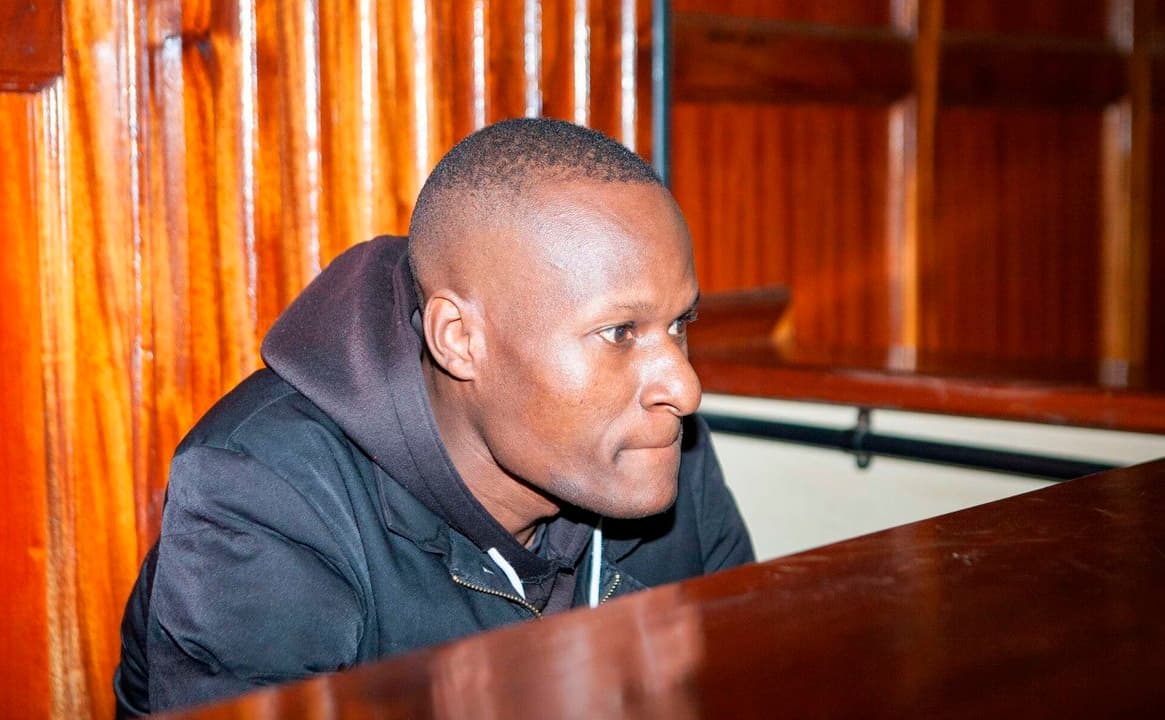We're loading the full news article for you. This includes the article content, images, author information, and related articles.
A police constable has pleaded not guilty to the murder of a hawker in Nairobi’s Central Business District. The case at the Milimani Law Courts puts the spotlight on police accountability and the use of lethal force in Kenya.

A police constable, Klinzy Masinde Baraza, on Wednesday, November 19, 2025, pleaded not guilty to the murder of a hawker, Boniface Mwangi Kariuki, in Nairobi's Central Business District. Appearing before Lady Justice Margaret Muigai at the Milimani High Court, the officer was formally charged with murder contrary to Section 203 of the Penal Code. The charge follows an investigation by the Independent Policing Oversight Authority (IPOA) and approval from the Office of the Director of Public Prosecutions (ODPP).
The prosecution immediately opposed the officer's application for release on bond, arguing he posed a flight risk and could interfere with witnesses. However, the defence lawyer, Vincent Yegon, strongly contested this, asserting his client's constitutional right to bail. "My lady, as we speak, my client is presumed innocent. Forget about what you have been told about this scenario... as far as the law is concerned, my client, Klinzy Baraza, is innocent until otherwise proven," Yegon argued in court. He emphasized that the prosecution had not provided compelling reasons to deny bail, as required by Article 49 of the Constitution. The court is expected to rule on the bail application in the coming days.
The shooting incident occurred on June 17, 2025, outside Imenti House, a busy commercial building in the heart of Nairobi's CBD. According to initial reports and eyewitness accounts, Boniface Mwangi Kariuki, a 29-year-old hawker, was shot at close range during a confrontation. He was rushed to a nearby hospital but succumbed to his injuries after undergoing surgery. The incident took place amidst protests related to police conduct, amplifying public scrutiny of the actions of law enforcement officers. The investigation was subsequently taken over by IPOA, the civilian body mandated to investigate deaths and serious injuries caused by police action.
This case emerges against a backdrop of persistent concerns over police brutality and extrajudicial killings in Kenya. Human rights organizations have repeatedly documented instances of excessive force by police, particularly in informal settlements and during protests. A 2024 study by the International Justice Mission (IJM) revealed that 42.9% of Kenyans had experienced misconduct by police officers between 2022 and 2024. Reports from organizations like the Independent Medico-Legal Unit (IMLU) have also highlighted numerous alleged extrajudicial killings by police.
The prosecution of a serving police officer for murder is a significant event and is seen as a crucial test for Kenya's justice and police oversight systems. The establishment of IPOA in 2011 was a key reform aimed at holding the police accountable. IPOA's mandate includes investigating police misconduct and recommending prosecution to the ODPP, which holds the constitutional power to institute all criminal proceedings. While IPOA has faced challenges, including accusations of being a "toothless dog," it has secured some convictions against officers, offering a glimmer of hope for accountability.
The legal framework governing the use of force by police in Kenya is outlined in the National Police Service Act. International and national standards stipulate that lethal force should only be used when strictly unavoidable to protect life. In July 2025, Interior Cabinet Secretary Kipchumba Murkomen issued a policy directive emphasizing that firearms should only be used as a last resort and that any use of force must be lawful and proportionate.
Following the 'not guilty' plea, the case will proceed to a full trial. The prosecution will be required to present its evidence and call witnesses to prove its case beyond a reasonable doubt. The defence will have the opportunity to cross-examine prosecution witnesses and present its own case. The outcome of the bail hearing will determine whether Constable Baraza remains in custody or is released on bond for the duration of the trial. The case will be closely watched by the public, human rights bodies, and the police service itself, as its handling and eventual verdict will have significant implications for justice and the rule of law in Kenya.
Keep the conversation in one place—threads here stay linked to the story and in the forums.
Sign in to start a discussion
Start a conversation about this story and keep it linked here.
Other hot threads
E-sports and Gaming Community in Kenya
Active 9 months ago
The Role of Technology in Modern Agriculture (AgriTech)
Active 9 months ago
Popular Recreational Activities Across Counties
Active 9 months ago
Investing in Youth Sports Development Programs
Active 9 months ago
Key figures and persons of interest featured in this article